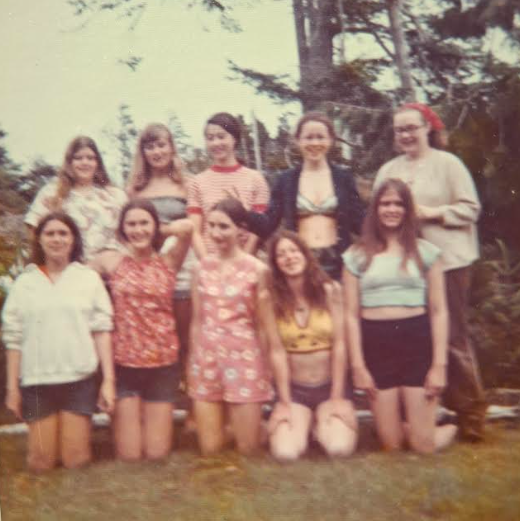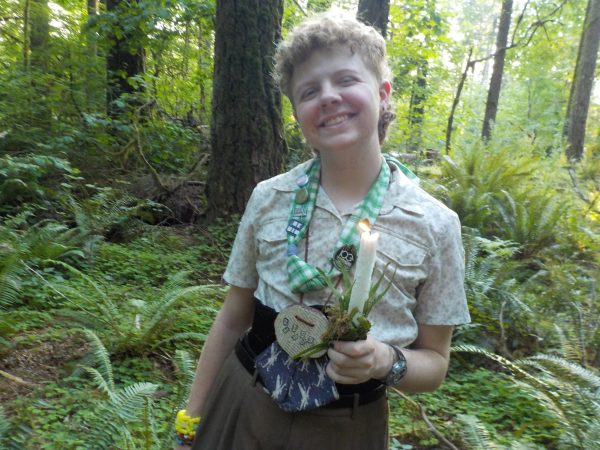“When we left, nobody knew that we left … and when we came back nobody recognized that we had been gone,” says Charles Lusardi, a veteran of the Korean War, former business owner, and former president of the Korean War Veterans Association (KWVA) Oregon Trail Chapter. “The only people who knew that the Korean War was going on were those who were in it and those families that had members who were involved from the military perspective.” This issue of “A Brief History of Portland” will cover the wars of 1950 to 1970 — the Cold War, Korean War, and Vietnam War — and their impacts on Portland in an era characterized by two decades of growth, protest, and change.
After World War II, a new phenomenon was sparked by the sudden public awareness and negative perception of communism, known as the Second Red Scare, the first appearing after the Bolshevik Revolution following World War I. The Cold War was characterized by the threat of nuclear war and mutually assured destruction; competition between communism and capitalism — primarily between two sponsor countries, the United States (U.S.) and the Union of Soviet Socialist Republics (U.S.S.R.); and through its use of proxy wars.
The Cold War also instilled among U.S. citizens an immense fear of their neighbors. At the time, President Truman was the U.S.’ 33rd president, and he utilized his own loyalty program, leaning into this fear. Truman’s administration worked to investigate any citizen who worked for the U.S. government and had participated in any protests or union activity with the goal of ensuring safety from communist influences. The Truman Library states that “[Truman] defended [the loyalty program] as necessary to preserve American security during a time of great tension.”
According to the Oregon Secretary of State website, this loyalty program started to be implemented at the state level, and Oregon itself nearly passed a law that would require public educators to have signed a statement saying they weren’t and never had been involved with the communist party “or any other organization that believes in, advocates, or teaches the overthrow of the United States Government.” This bill was stopped by former Governor Sprague who cornered one of the co-sponsors of the bill, Mark Hatfield, three times until he was finally able to convince him to drop it.
The Cold War earned its name due to the fact that no physical fighting between U.S. and U.S.S.R troops happened. That is not to say that this time did not have any fighting, in fact, this era is known for its many proxy wars which are defined by the Oxford English Dictionary as “a war instigated by a major power which does not itself become involved.” One of these proxy wars was the Korean War, which was fought for three years from June of 1950 to July of 1953.
U.S. citizens were tired of being flooded with propaganda and war media following WWII, so when the Korean War started only five years later, nobody wanted to pay attention to it. For this reason, this proxy war gained the nickname “the Forgotten War.” Lusardi details how, for him and others like him who grew up in the Great Depression without many job opportunities, enlisting in the military right out of high school was the only option.
Of the wars of this time, Lusardi explains, “it was probably one of the bloodiest meat grinder wars immediately following the Second World War.” The Korean War lasted 37 months, which is approximately how many thousands of lives were lost. “Nearly 37,000 [were] killed, which was on average 1,000 a month.” Lusardi continues, saying, “Keep in mind that a good percentage of those — a measure percentage of those — were individuals who were anywhere from 17 to 20 years old.”
There were no support systems set up for those who fought, and in Portland, it would remain this way until the 90s. To this day, many people are unaware of the number of people who fought during the primary years of the war and those who have served for at least nine months afterwards — around 35,000 troops in the past 70 years. Lusardi and the other members of the KWVA have worked to combat this by doing outreach in schools in Southwest Portland.
This was not just the Forgotten War in the eyes of the public, but veterans themselves didn’t talk about it much either. Lusardi mentions the fact that while working for Techtronix in 1959, he started a new division of around 250 people. “Several of those people in that department that I worked with for 10 years, [I] did not know were Korean War veterans,” just like himself, Lusardi explains.
In the mid-90s, Lusardi and the Oregon Trail Chapter of the KWVA moved towards making a memorial for the Korean War in Oregon which would be put up in 2000. It’s located in Wilsonville Town Center Park, across the street from their city hall. It cost around $500,000, which was predominantly paid for by the Korean government, as well as Korean companies and donations from Korean citizens. The Oregon Trail Chapter of the KWVA petitioned the Oregon government for some financial assistance but received none. Lusardi states, “[The state of Oregon] offered us $1 for every Oregonian who was killed in the Korean War,” which would’ve given them just under $300. He continues, saying they “declined the state’s money and told them that ‘well we’re sorry you guys obviously need it a lot more than we do.’”
The Korean War was just the first major proxy war of the Cold War, followed shortly by the Vietnam War. Lusardi explains how it was also the start of the U.S. involving itself in wars with no real plan or idea for the end goal. The end of the Korean War also began to show the uptick in citizens disrespecting the veterans who fought simply because they disagreed with the war as a concept. “The Korean veterans were one step short of the disrespect that was shown [to] the Vietnam veterans when they came back,” Lusardi finishes.
The highly covered Vietnam War caused many protests among U.S. citizens, especially youth, who saw firsthand on TV and over radio the impacts the war was leaving. Many of these protests were peaceful, using tactics like sit-ins or marching to get across citizens’ distaste for the war. Unfortunately, this hate extended to those who fought, many of whom did so against their will, having been drafted. However, these protests did have positive outcomes, like lowering the voting age from 21 to 18. One of the largest contentions among protesters was that men were required to sign up for the draft at 18, but couldn’t vote until they were 21.
The Vietnam War, similar to all Cold War conflicts, featured a conflict between communism and capitalism. American troops fought in Vietnam from 1965 to 1975, but the U.S. had military advisors in the country for even longer, dating back to the 50s. Unlike the Korean War, the Vietnam War was an incredibly large conversation in U.S. politics and media, and wasn’t ignored or forgotten.
While there were many protests about the Vietnam War, there’s almost no documentation of any protests in Portland, which, when examining Portland’s voting history, makes sense. Greg Garcia, a U.S. history teacher at Franklin, states, “Oregon and specifically Portland, typically is, [during] this time period, … more conservative than liberal.” Most of these protests were carried out by left-wing individuals, and from 1968 to 1988, Oregon voted Republican. Garcia continues on to say, “Portland has not always been the Portland we now know.”
The mid-20th century was riddled with violence, both protests and war. With the current state of the U.S.’ political and economic climate, Garcia shares what he tells his worried students: “By design, our country can correct itself, it can heal itself when it makes a mistake.”
Having an appreciation for the life humans are given after a difficult event can be the saving grace for one’s perspective on the future. Lusardi comments, “I hold no animosity towards my service in the military or in Korea; it was meant to be.” He continues, “All of my life has brought me to this point now … where at 93 years old, I’m sitting here looking back and appreciating every step of the way, some of them pretty hard, but so many have been so fruitful and so beautiful.”


































